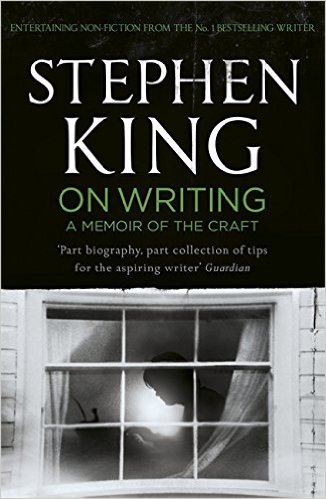5 Things I Learned When I Decided to Switch Genres
 I was in the middle of mundane household chores when the idea for The Lost Girl of Astor Street struck: Veronica Mars meets Downton Abbey was my initial thought. Followed quickly by, But I’ve never written a mystery or a historical! There’s no way I could write that.
I was in the middle of mundane household chores when the idea for The Lost Girl of Astor Street struck: Veronica Mars meets Downton Abbey was my initial thought. Followed quickly by, But I’ve never written a mystery or a historical! There’s no way I could write that.
The idea nipped at me all day long.
As did the doubts.
I’ve written stories all my life, but I had never before experienced such fear about writing a story. My published titles were all contemporary YA novels, about girls trying to navigate the complicated social life of modern-day high school. Writing contemporaries comes with its own unique set of hurdles, but I had years of experience overcoming those. Did I really think I could handle something as complicated as a historical mystery?
I kept thinking of Holly Gerth, and her advice to:
Be courageous, and write in a way that scares you a little bit.
Did the fear mean that I was onto something with this idea?
Maybe you are considering writing a different type of book than you have in the past, whether that involves a genre switch, a different type of main character, a theme that makes you feel too vulnerable, or something else.
If so, here are five things I learned when I made my genre switch that I hope will help you along your way.
Top 5 Things to Know if You Decide to Switch Genres
1. Get Help From Someone a Few Steps Ahead of You
I’m fortunate to have a best friend who writes historical romance novels. I sent her a panicky, “Hey, I don’t know what I’m doing! I don’t even know how to begin researching this!” kind of text. She offered me simple, manageable advice.
The first thing to do is figure out exactly where and when your book takes place. That’ll help guide the rest of the process.
After she said it, it seemed obvious. Of course that should be my first step!
 Maybe you aren’t fortunate enough to have a best friend already doing what you want to be doing, but we live in a lovely generation of shared knowledge. Where Maggie Stiefvater hands out free advice about crafting characters, Stephen King has written an entire book to tell you about his process, and most writers have a “How I got published” story somewhere on the web.
Maybe you aren’t fortunate enough to have a best friend already doing what you want to be doing, but we live in a lovely generation of shared knowledge. Where Maggie Stiefvater hands out free advice about crafting characters, Stephen King has written an entire book to tell you about his process, and most writers have a “How I got published” story somewhere on the web.
Who is writing the kinds of books you want to write? If you haven’t already done so, follow them on social media. Look through their blog archives. Read interviews they’ve given. They have knowledge that will make your journey easier.
2. Don’t Linger Too Long in Preparation
After I pinpointed the specific date and location of my story (Spring of 1924, Chicago, Illinois, the Astor Street district), I started to research. And research. And research. And research…
After a while, I suspected my research and preparation was becoming a cocoon of sorts, rather than a launching pad. Of course, the cocoon is necessary and valuable to the process of creating something new, but eventually you have to leave. I was experiencing something akin to Storyworld Builders Disease, which fantasy and sci-fi authors can go through, and I realized it was time to begin the actual writing.
3. Embrace the Messiness of Telling a New Kind of Story
After lots of starts and stops, I finally hit a good balance of when to write without pausing to research, and when I needed to go look up something. When I finished the first draft, I took my standard six weeks off, and then eagerly reread my creation.
Much to my disappointment, she was extremely messy. I still had a lot to learn about crafting a strong historical mystery.
4. Realize the Process Will Take Longer Than Expected
I had gotten pretty fast at writing my YA contemporary novels. I could throw down a first draft in 6-8 weeks and have edits done in 12.
 My first draft of The Lost Girl of Astor Street took me three months, which I didn’t think was too bad. But then my edits took me a year. Whenever I got one element of the story fixed, it seemed like it highlighted three more pieces that were wrong.
My first draft of The Lost Girl of Astor Street took me three months, which I didn’t think was too bad. But then my edits took me a year. Whenever I got one element of the story fixed, it seemed like it highlighted three more pieces that were wrong.
If you’re writing a new kind of book under a deadline, make sure to build in more time than you think you need!
5. Have Faith in Yourself
Changing genres isn’t always a smart move for a writer, but if you have a story you’re burning to tell, I hope you’ll be encouraged to go for it!
While The Lost Girl of Astor Street thankfully found a good home with Blink/HarperCollins, writing the story would have been valuable even if it hadn’t. Because even if you don’t publish your book, you will learn so much about yourself and storytelling in the process of pushing yourself to try something new.
Wordplayers, tell me your opinion! If you could switch genres right now, what would you start writing? Tell me in the comments!
The post 5 Things I Learned When I Decided to Switch Genres appeared first on Helping Writers Become Authors.
 newest »
newest »
 I like your energy.
I like your energy.



